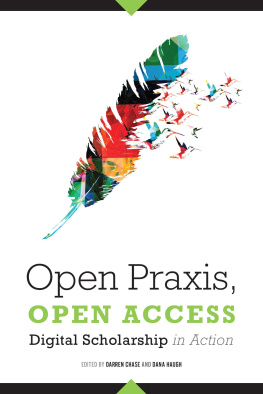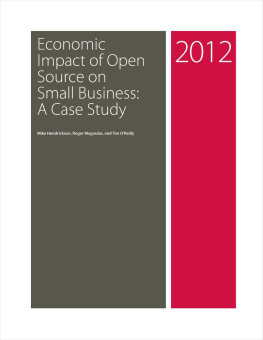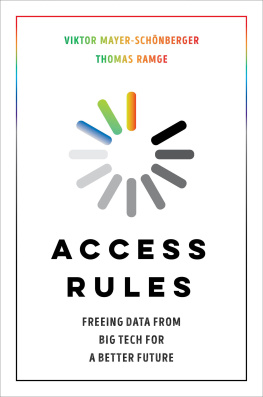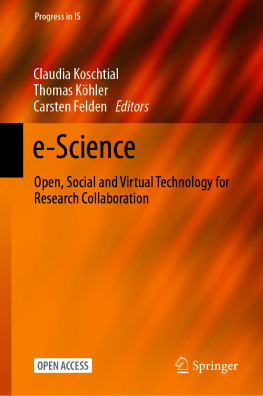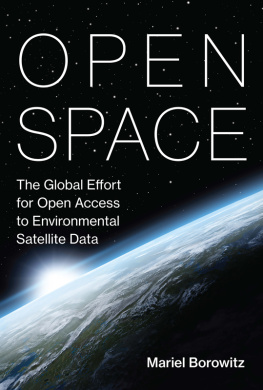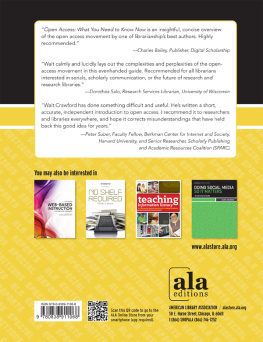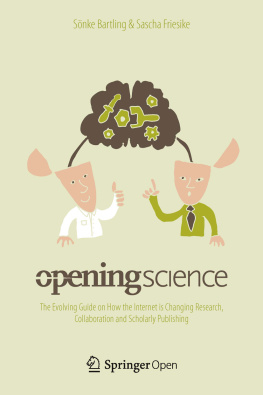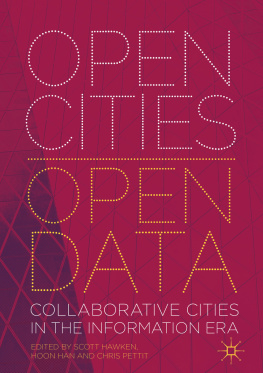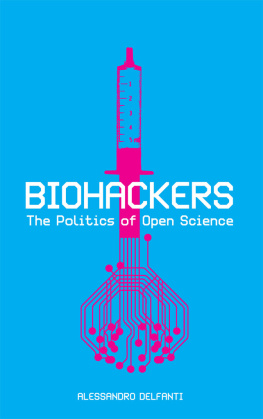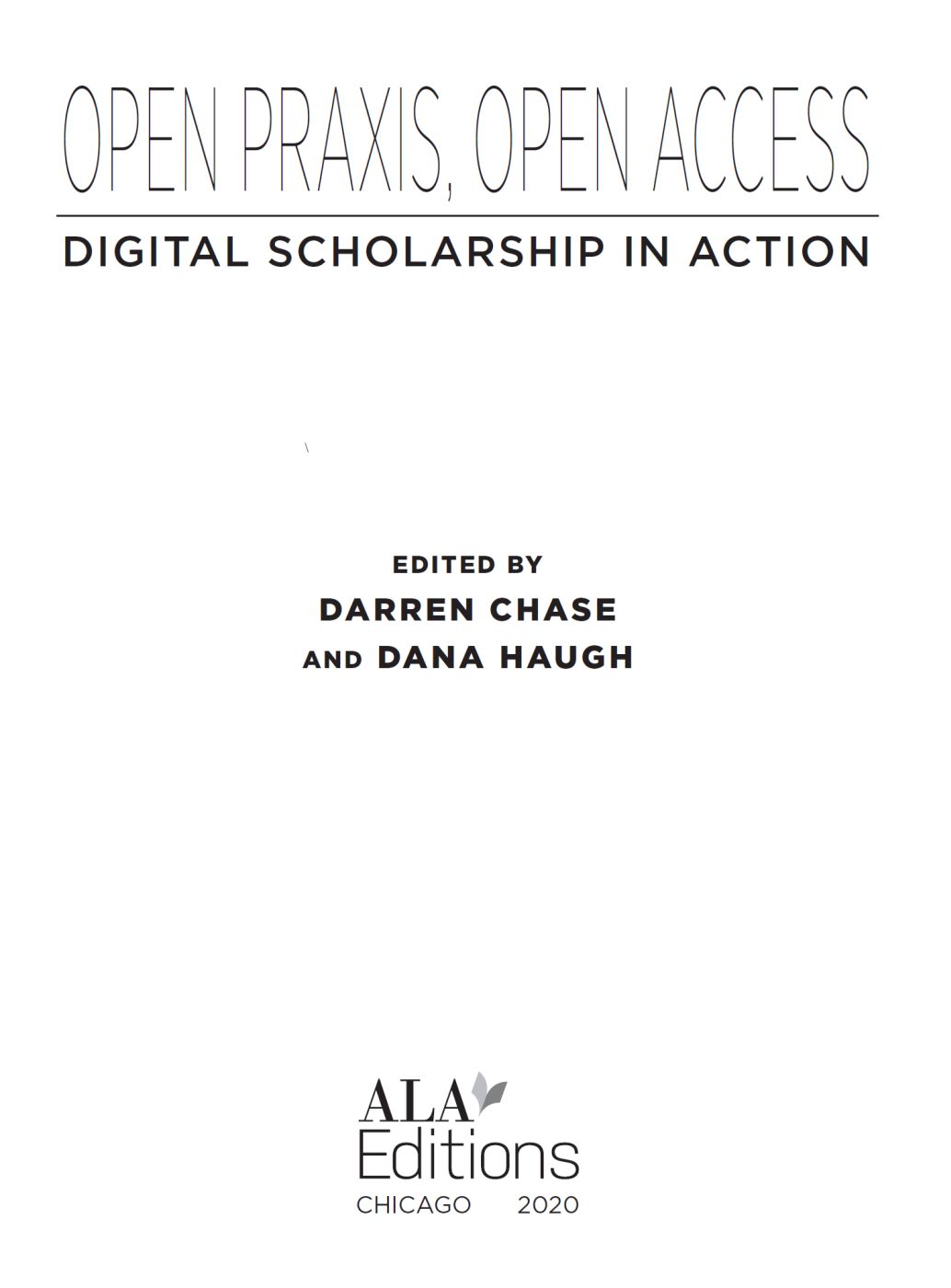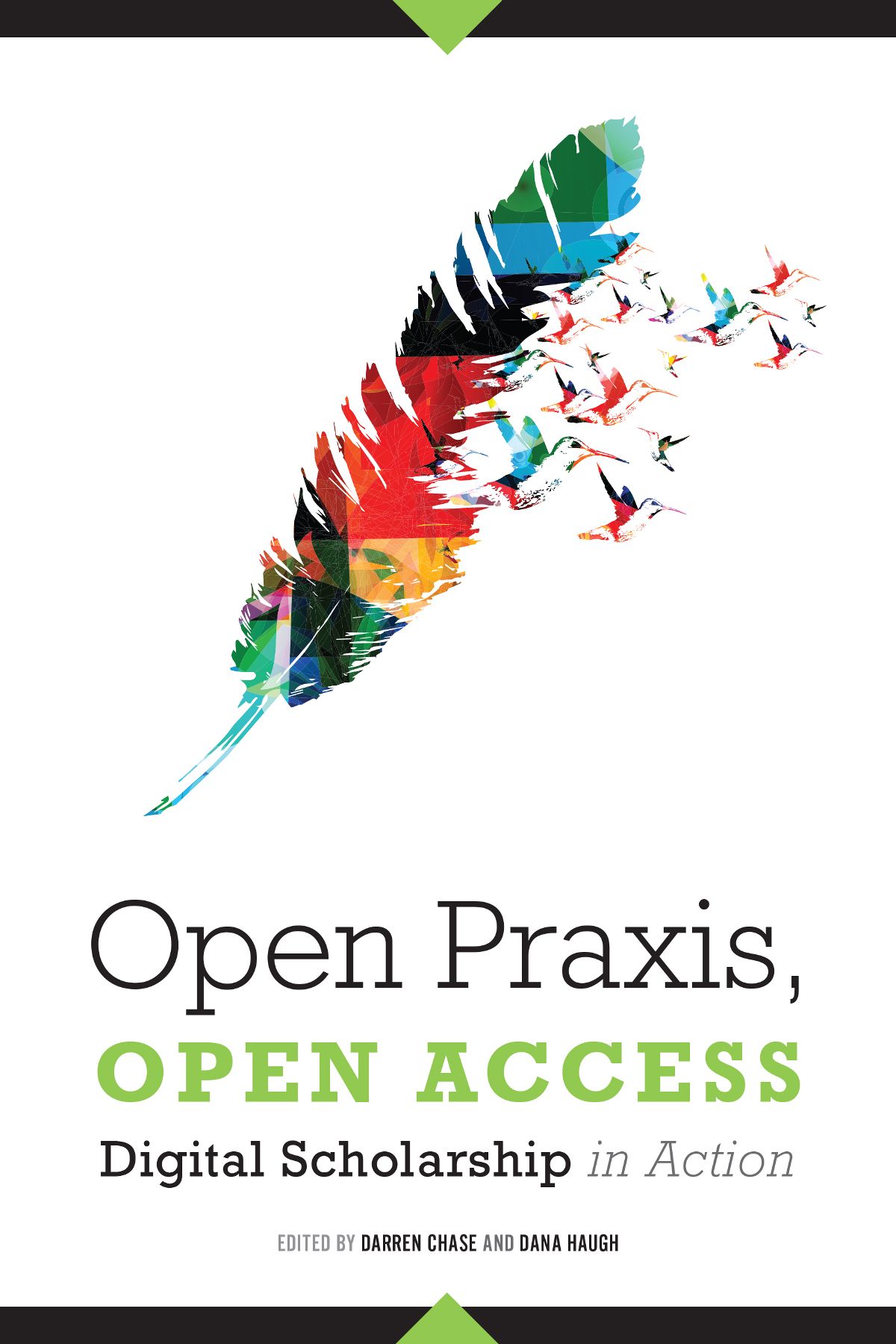
ALA Editions purchases fund advocacy, awareness, and accreditation programs for library professionals worldwide.
PEER REVIEW BOARD
- Elizabeth Brown, SUNY Binghamton
- Alexis Clifton, SUNY Geneseo
- Catherine Dwyer, SUNY Albany
- Kathleen Kasten, Stony Brook University
- Lis Pankl, University of Utah
- Victoria Pilato, Stony Brook University
- Meredith Powers, CUNY York College
- Clara (Yuet) Tran, Stony Brook University
- Constance B. Williams, CUNY Queensborough Community College
2020 by the American Library Association
Extensive effort has gone into ensuring the reliability of the information in this book; however, the publisher makes no warranty, express or implied, with respect to the material contained herein.
ISBNs
978-0-8389-1867-8 (paper)
978-0-8389-1899-9 (PDF)
978-0-8389-1898-2 (ePub)
978-0-8389-1900-2 (Kindle)
Library of Congress Cataloging-in-Publication Data
Names: Chase, Darren, 1969- editor. | Haugh, Dana, editor.
Title: Open praxis, open access : digital scholarship in action / edited by Darren Chase and Dana Haugh.
Description: Chicago : ALA Editions, 2020. | Includes bibliographical references and .
Identifiers: LCCN 2018059730 | ISBN 9780838918678 (paper : alk. paper) | ISBN 9780838918982 (epub) | ISBN 9780838918999 (pdf) | ISBN 9780838919002 (kindle)
Subjects: LCSH: Open access publishing. | Communication in learning and scholarship. | Libraries and electronic publishing. | Institutional repositories. | Open educational resources.
Classification: LCC Z286.O63 O68 2020 | DDC 070.5/7973dc23
LC record available at https://lccn.loc.gov/2018059730
Cover design by Karen Sheets de Gracia. Cover image monikaljubisa/Adobe Stock.
Contents
VICTORIA MARTIN, Salisbury University
ROSARIE COUGHLAN, Queens University, Canada
MARK SWARTZ, Queens University, Canada
PEGGY SPITZER CHRISTOFF, Stony Brook University
JAMIE M. SOMMER, Stony Brook University
LAURA FRANCABANDERA, Credo Education, Scotland
MARY JO ORZECH, SUNY Brockport
KIM L. MYERS, SUNY Brockport
LAURA COSTELLO, Rutgers University
HEIDI ZUNIGA, Colorado State University
LILIAN HOFFECKER, University of Colorado
PAUL ROYSTER, University of Nebraska-Lincoln
LAUREL SCHEINFELD, Stony Brook University
JOAN WAGNER, Touro College
KEITH PARDINI, Touro College
RACHEL BAUM, Bay Path University
MELISSA E. JOHNSON, Augusta University
RHONDA ARMSTRONG, Augusta University
JESSICA MARTINEZ, University of Idaho
JYLISA DONEY, University of Idaho
RICK STODDART, University of Idaho
KATHY LADELL, Northern Illinois University
ANNE GRENON CHERNAIK, College of Lake County
ANNE CRAIG, Consortium of Academic and Research Libraries in Illinois
ELIZABETH NELSON, McHenry County College
ANNE SHELLEY, Illinois State University
JANET SWATSCHENO, University of Illinois at UrbanaChampaign
JESSICA CLEMONS, University of Buffalo
ERIN D. FOSTER, Indiana University
HEATHER L. COATES, IUPUI University
JESSICA A. KOOS, Stony Brook University
JAMIE SARAGOSSI, Stony Brook University
GREGG A. STEVENS, Stony Brook University
LAUREL SCHEINFELD, Stony Brook University
O pen praxis is guided by intention. We achieve excel lence by taking deliberate steps, informed by the past, shaped by the present, and inspired by goals and aspirations born out of ethical practice and the conviction that open access will be the engine of transformation leading to more culture, more research, more discovery, and more solutions to small and big problems.
T he editors would like to acknowledge the superb work of all those involved in this project, especially the contributors and reviewers who dedicated their time and expertise to help create this excellent resource. Their contributions and shrewd insight into the practice and intellectual underpinnings of open scholarship truly encapsulate the scope and range of open praxis.
Thank you to all those who continue to push the boundaries of scholarship in order to reclaim our rights as readers, researchers, knowledge creators, and knowledge seekers. Knowledge cannot, and should not, be restricted. In that spirit, all chapters in this volume are shared via Green Open Access.
Dana Haugh
Yale University
Darren Chase
SUNY Oneonta
Overview of Open Praxis
VICTORIA MARTIN
The Concept of Openness in Scholarship
Open scholarship, and the debate about it, bears the certainty of messy understandings, confusion, conflict, misappropriation, and tangential focus. But, it is only in this open sphere that scholarship has any power or potential at all to engage debate and to shift understandings.
Jessie Daniels and Polly Thistlethwaite, Being a Scholar in the Digital Era
I n October 2003, the Public Library of Science (PLoS) pub lished the first issue of its open access journal PLoS Biology, in which Duke University researchers Miguel Nicolelis and Jose Carmena publicized their research findings about how they had trained monkeys with brain implants to move a robot arm with their thoughts, a discovery that might one day allow paraplegics to perform similar functions. That first issue of PLoS Biology received more than half a million hits throughout the world within a few hours after its publication. Nothing else has ever argued so strongly for open access publishing, observed the founders of PLoS, Michael Eisen, a biologist at Lawrence Berkeley National Laboratory, Harold Varmus, a Nobel laureate, and Patrick Brown, a biochemist at Stanford University, whose intention was to do something that fundamentally changes the way scientific research is communicated.
The philosophy of open access publishing is based on the view that research findings should be freely and immediately available to the worldwide scientific community and to the general public. Because open access publishing practices provide an effective online system for submission, peer reviewing, and publication, making research papers rapidly available for a worldwide audience, they have gained acceptance primarily in the biomedical sciences, where speed to publication can be crucial, both for scientists, who make the breakthroughs in drug design and new treatments for diseases, and for clinicians, who care for patients suffering from those diseases.
While the open approach to scholarship is becoming increasingly recognized as a valuable approach in knowledge production and distribution, it is not yet considered mainstream in scholarly circles. The debate over openness and what it means for the future of scholarship still goes on. This debate speaks to the evolving nature of openness in scholarship, as well as its complexity and multidimensionality. The term open itself is a vaguely defined word that has been used in a number of ways. As Morozov argues, few words in the English language pack as much ambiguity and sexiness as open.... Open could... mean virtually anything.
THE CHALLENGE OF DEFINING OPENNESS
There appears to be little consensus among scholars about what exactly constitutes openness in scholarship. There are several ways in which openness can be perceived, as discussed below.
Next page
